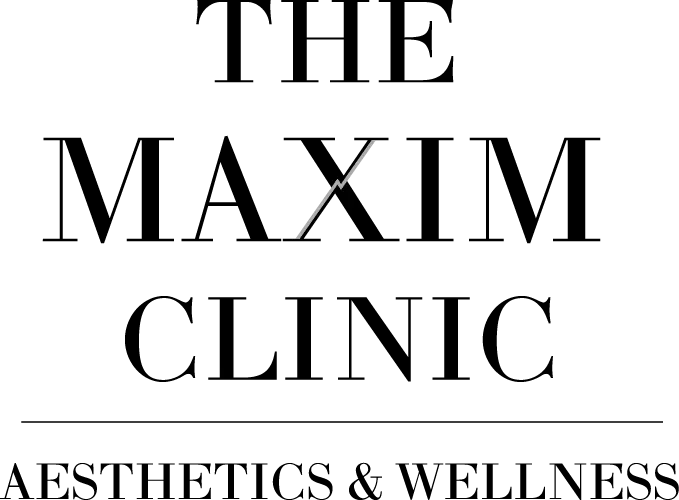How to Choose a Safe Tirzepatide Weight‑Loss Clinic in Atlanta
- Start with safety: choose a physician‑led clinic that reviews your history, checks labs, and monitors you.
- Verify sourcing: prefer FDA‑approved products; if compounded, request 503B/503A documentation.
- Ask smart questions: who prescribes, how dosing works, and how follow‑ups occur.
- Watch for red flags: guaranteed results, novelty “sprays,” rushed visits, or no aftercare.
Fast can be fine. Reckless isn’t. Choose physician‑led care that protects your health, your results, and your peace of mind.
Summary: Tirzepatide—the active ingredient in Zepbound® and Mounjaro®—can drive meaningful weight loss when clinicians supervise treatment. Unfortunately, the market now includes unregulated clinics and questionable products. This guide explains how to vet providers in Atlanta, Marietta, Norcross, and Sandy Springs, which warning signs to avoid, and why physician‑led protocols safeguard long‑term results.
Start with a Physician‑Led Evaluation
Personalized dosing. Transparent sourcing. Ongoing follow‑up in Atlanta, Marietta, and Norcross.
Your Safety Comes Before Speed
Results matter; safety matters more. A licensed, physician‑led clinic should review your medical history, tailor a plan, and monitor labs. In addition, the team should source medication from verified pharmacies or FDA‑registered 503B outsourcing facilities. Anything less increases risk and reduces the odds of durable results.
Why Tirzepatide Works So Well
Tirzepatide acts on pathways that influence appetite, fullness, and blood‑sugar control. In large peer‑reviewed trials, people under medical care achieved double‑digit weight loss over roughly 72 weeks. Real life still requires habits; therefore, the best programs combine medication with nutrition, movement, sleep, and accountability.
- Evidence snapshot: Phase‑3 studies such as SURMOUNT‑1 reported average losses exceeding 15%–20% at higher doses with supervision.
- Translation: The medicine is powerful. Your protocol and follow‑through turn power into progress.
Spot These Red Flags Before You Sign Up
When a clinic sells injections but skips medicine, patients pay the price. Watch for:
- No complete intake or medical history before prescribing.
- No discussion of key warnings (for example, thyroid C‑cell tumors seen in animals) or who should not use the drug (for example, MEN2 or a personal/family history of medullary thyroid carcinoma).
- Staff cannot explain common side effects, dose holds, or when to call the office.
- No scheduled follow‑ups, lab checks, or after‑hours support.
- Reviews that mention rushed visits, unclear dosing, or vague instructions.
Bottom line: Responsible clinics evaluate first, personalize dosing, and monitor you throughout care.
Compounded Tirzepatide vs. FDA‑Approved Options
The FDA does not approve compounded drugs. Quality depends on the facility and the law allows compounding only under specific conditions. During shortage windows, rules differ for 503A and 503B entities; when supplies return, latitude narrows. Therefore, ask where your medication is made and under what standards.
- Request documents: Is the source an FDA‑registered 503B outsourcing facility (CGMP‑inspected) or a 503A pharmacy? Can the clinic show chain‑of‑custody records?
- Avoid novelty forms: “Drops,” “films,” “sprays,” or “topicals” marketed as tirzepatide are red flags. Stick with evidence‑based forms.
- Insist on traceability: Reputable clinics track lots and notify patients if issues arise.
Consumer Alerts: Oversight Protects Patients
State Attorneys General have warned consumers about unapproved or misleading GLP‑1 products and unlicensed providers. Oversight protects you medically and legally. Accordingly, verify licenses, verify sourcing, and verify supervision before you begin.
How to Vet Clinics in Atlanta, Marietta, Norcross & Sandy Springs
- Verify licensing: Use the state medical board to confirm active licenses and clean records for the supervising physician and any nurse practitioners or PAs.
- Review the consultation process: Legit programs require intake, eligibility screening, informed consent, and baseline data such as labs.
- Probe dosing and follow‑up: Ask how titration works, how side effects are handled, and how often check‑ins occur.
- Confirm pharmacy standards: Request written confirmation of pharmacy partners (for example, PCAB‑accredited, USP‑aligned; 503B when applicable).
- Look for lifestyle support: Nutrition, movement, sleep, and relapse‑prevention coaching should be built into care.
What Responsible, Physician‑Led Care Looks Like
- Personalized titration: Start low, advance by response, and pause or reduce if side effects appear.
- Structured monitoring: Regular follow‑ups; labs as indicated; clear escalation rules.
- Lifestyle integration: Practical guidance on meals, hydration, activity, sleep, and maintenance.
- Transparent sourcing: Named pharmacy partners, CGMP/PCAB/USP standards, and batch traceability.
Serving North Atlanta With Standards—Not Shortcuts
The Maxim Clinic provides GLP‑1 weight‑loss care across Norcross, Marietta, Sandy Springs, and the greater Atlanta metro. We customize every plan, monitor every patient, and keep safety first.
Book a Private Consultation | Ask a Question
Education: Benefits, Risks, and Who Should Not Use It
Potential Benefits
- Clinically meaningful weight reduction with medical supervision.
- Downstream metabolic gains, such as improved glucose control in high‑risk groups.
- Better satiety and portion control as habits take root.
Common Side Effects
Nausea, vomiting, diarrhea or constipation, fatigue, and appetite changes are common. Many improve with dose adjustments, food timing, or a brief pause.
Key Warnings and Contraindications
- Boxed Warning: Rodent studies observed thyroid C‑cell tumors; do not use if you have MEN2 or a personal/family history of medullary thyroid carcinoma.
- Use extra caution with: Prior pancreatitis, gallbladder disease, severe GI disease, or known hypersensitivity to components—these require careful evaluation and monitoring.
This guide is educational and not medical advice. Always consult a qualified clinician for personal recommendations.
Marketing Claims to Avoid
- Guaranteed results (“Lose 30 lbs in 30 days”). Biology doesn’t sign those contracts.
- One‑size‑fits‑all protocols with no titration or follow‑up.
- Pressure tactics that discourage questions or due diligence.
- Off‑label novelty formats—drops, dissolvables, sprays—sold as tirzepatide without evidence.
Five Questions to Ask Any Clinic
- Who prescribes and supervises my care? Are they licensed in Georgia? What are their credentials?
- Where is my medication sourced? Is it FDA‑approved or, if compounded, from an FDA‑registered 503B facility that follows CGMP standards?
- What is the titration and follow‑up schedule? How do you manage side effects? When do you hold or reduce a dose?
- What labs or screenings do you require? Baseline and periodic checks protect patients—and outcomes.
- What lifestyle support is included? Nutrition, activity, sleep, and relapse‑prevention coaching should be part of care.
Set Realistic Expectations
Most momentum arrives in the first 6–12 months. After that, stability—not whiplash weight cycling—becomes the goal. Medication can start the change; daily habits keep the win.
Continue Your Research
Frequently Asked Questions
Is compounded tirzepatide safe?
The FDA does not approve compounded drugs. Quality varies by facility. During shortage windows, rules differ for 503A and 503B entities; outside those windows, compounding latitude narrows. Ask for documentation and choose facilities that meet CGMP‑level standards when applicable.
How fast will I lose weight?
It depends. Clinical trials report double‑digit percent reductions over about 72 weeks with medical supervision. Your plan, dose, consistency, and lifestyle determine speed and durability.
What is the biggest risk with “cheap” clinics?
Unverified sourcing, poor dosing, no follow‑up, and little accountability. That mix raises side‑effect risks and undermines long‑term results.
Do I need labs?
Responsible programs order baseline labs and periodic follow‑ups as needed. Labs support individualized dosing and safety.
Who should not use tirzepatide?
People with a personal or family history of medullary thyroid carcinoma or MEN2 should not use it. Other conditions—such as prior pancreatitis—require a careful risk‑benefit discussion with a licensed clinician.
References & Further Reading
- FDA — Compounding, GLP‑1 guidance, and outsourcing facility standards
- PCAB — Pharmacy Compounding Accreditation Board standards
- Zepbound® (tirzepatide) US Prescribing Information
- SURMOUNT‑1 Trial — Tirzepatide for weight management (PubMed)
Designed Care. Measurable Results.
GLP‑1 programs that respect safety, science, and your time.
Norcross • Marietta • Sandy Springs • Greater Atlanta

